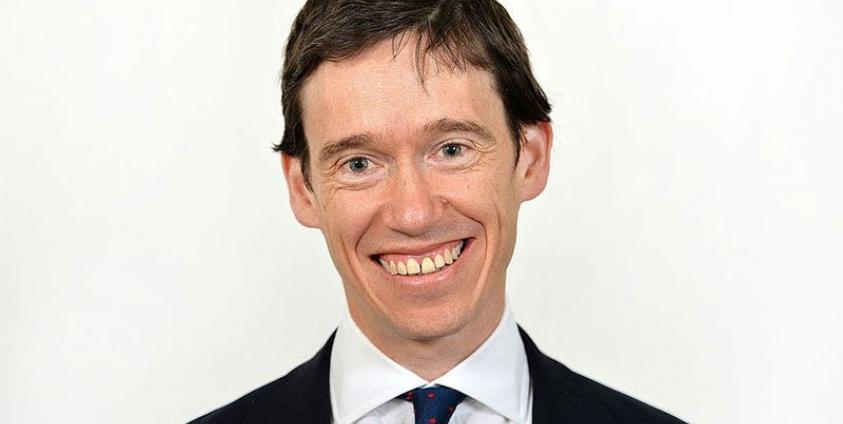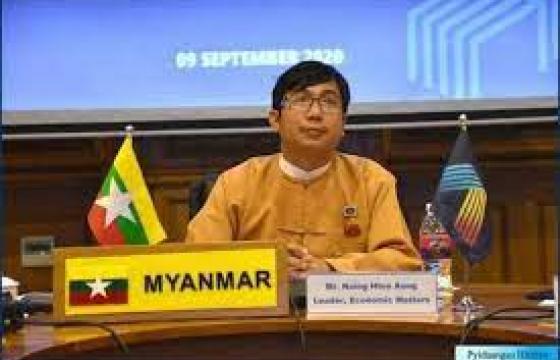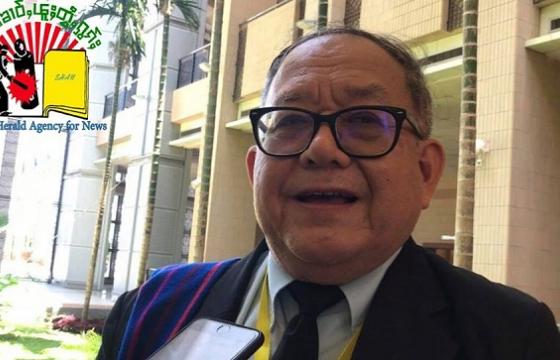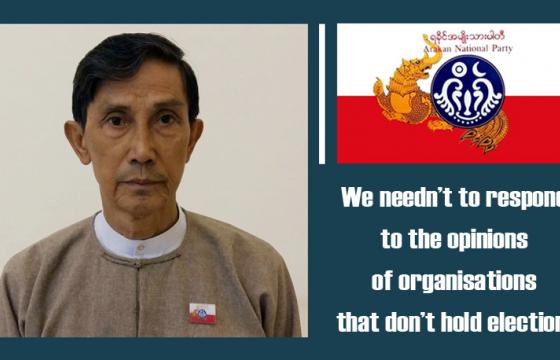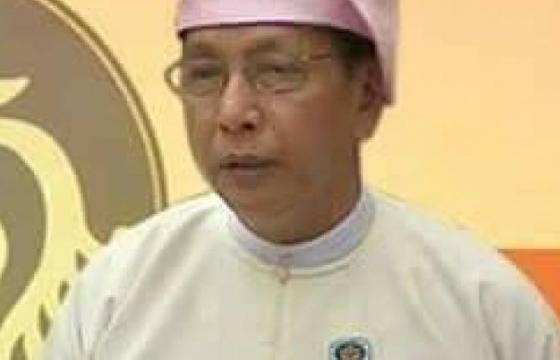Visiting UK Minister Rory Stewart has expressed his optimism over Myanmar’s future and called for patience as the Myanmar government attempts to deal with a raft of challenges.
In an exclusive interview with Mizzima, the UK Minister of State at the Department for International Development offered a brief insight into the findings of a three-day official State visit at the end of his trip on August 27.
Mr Stewart was appointed to his position in July. This was his first official visit as minister to Myanmar, though he has visited three times before in a different capacity. His father was second secretary of the British Embassy in Yangon in 1958.
What would you say are the main takeaways from your official visit to Myanmar?
I think this is a really exciting time in Burmese history. I have been so impressed by the energy and the optimism of the Burmese people. So we are really focusing on three main areas. The first is what we call human development, which is health and education, the second is livelihoods, in other words the economy, and the third area is in government and security.
You mention the health and education. What is the UK doing to do in terms of these sectors?
The areas that in health that are strong are firstly in tuberculosis TB, and particularly drug resistant TB, so we are supporting two kinds of programmes. One of them is making sure that people who have drug resistant TB are taking their pills until the end of their course. The second it technical methods, of doing x-rays on chests, which allow you to detect TB more reliably.
In malaria, for example, we are supporting another 2 million mosquito nets. We are supporting treatment for thousands of people, and we are also supporting test kits for hundreds of thousands of people.
What about in terms of education?
Education, we are looking at two different education projects. Probably the most interesting for me is English language training for teachers’ teachers. For the trainers. So we went to an education college in Moulmein today and there are two young British men who are very, very experienced teachers who are teaching English but also teaching English teaching techniques.
What is the difference for the UK government between working with the previous government and the new Myanmar government?
The big difference is this is a government which has been democratically elected and so we can work much more closely with this government. It is a government where we can coordinate what we are doing with our donor aid, we can make sure we can listen to priorities of the president, of the State Counsellor of the new government and make sure what the UK government is doing and the Burmese government are doing work right next to each other.
How do you view progress with the UK government’s development programmes?
I think there are a number of things that have been really effectively for example particularly around health, TB and malaria and I think we can make big, big progress on that.
I also think there is a lot of optimism, a lot of energy around this, because some of this is quite new. In other parts of the world, people have been receiving aid for many, many years, and maybe they are a little tired of it. Whereas here there is a real sense of energy and optimism.
There are high expectations about the new Myanmar government and after the first 100 days of them working in office, how do you view the strength of this government?
I think the biggest strength of this government is what we would call its democratic legitimacy, in other words, it is an elected government, and it is an open government, and it is a government that wants to listen to people, that wants to include them in the conversation.
We can see this for example in the peace process at the moment, we can see this in the appointment of the Kofi Anan commission [regarding Rakhine State]. This is a government that is listening.
I’m a politician, I’m a minister in Britain, and the one thing I would say it is necessary at times like this to show a little patience. The public in any democratic country always gets a little impatient, always wants things to go faster and faster. But I think there are many things to do in Myanmar, so many different challenges, and I would say we need to be a little patient to give the government some time.
How do you view the upcoming peace conference?
I think it is a very interesting opportunity but it is difficult. After many, many years of conflict, it is always very difficult finding middle ground because many people have been hurt and this is going to be a real test and of time, and trust, this all needs to come through trust.
Is there anything you would like to add?
I would just like to say how happy I am to see Myanmar, how positive people are, how much I feel Myanmar has a wonderful future. It’s got a fast-growing economy, it has got a wonderful population, and it is a beautiful place.
I loved for example seeing the old city of Yangon and I very much hope you protect it because it is something that people from all over the world will come and visit and admire, and your history and your heritage is something so special and I hope as you develop and modernize that you are also able to protect the best things about the past and keep the value of that history and that past.

